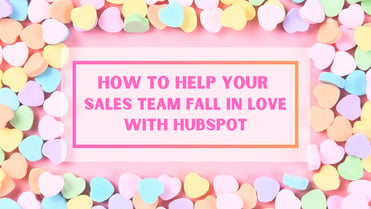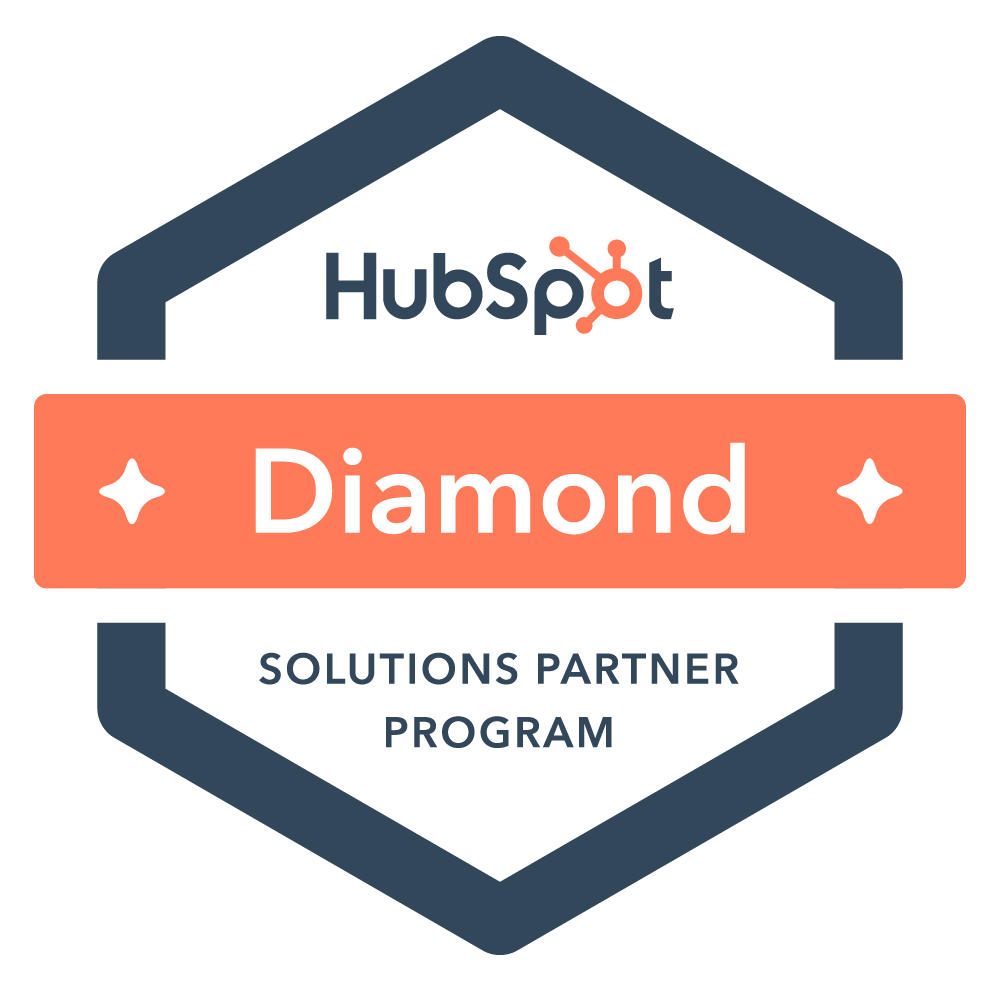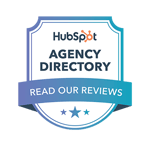
Making Sense of CRM Choices: HubSpot or Salesforce?

Selecting the right Customer Relationship Management (CRM) solution is a pivotal decision for any business. CRM software serves as the central hub for managing customer interactions, streamlining sales processes, and enhancing marketing efforts. Among the myriad of CRM options available today, two heavyweights often stand out: HubSpot and Salesforce. Beyond the generalized understanding of Salesforce being the “most customizable, but also most budget-heavy,” or HubSpot being “the lighter, less enterprise version” of commercial CRM platforms, there's actually a lot more to consider. In this article, we will explore the major areas of focus involved in the buying and comparison process of selecting either HubSpot or Salesforce as your CRM solution.
When is too many features, truly too many? If you’re a business trying to keep track of your customers, a CRM platform is a must. And while there is a wide array of platforms to choose from, a few names tend to bubble to the top. Among the leaders, HubSpot and Salesforce tend to check the boxes for interested buyers most often (or at the very least, buyers are familiar with the name/brand alone). But when you get under the hood of both systems, it’s easy to get lost in the plethora of capability and feature sets for each. The research and decision process can be downright painful if you’re unsure which path to take - both platforms are prominently positioned to be your CRM and larger platform of choice…now if only you’d make yours already…
“It’s not that easy.” And you’d be 100% right. Rather than have you speedread your way through this article and skim the feature set comparisons you can find further down, the goal is to help you adjust your approach to this growingly complex challenge that sits before your organization. And it starts with understanding the need. When you think about your business or organization’s current needs, growth trajectory, and expected usage for a CRM tool like HubSpot or Salesforce, the very first question you need to answer is around the overall applicability of the tool itself. What are you expecting to use it for? It can seem like a primitive exercise, especially if you’ve already got a customer CRM platform in place but it’s a critical step to ensuring you make the right call for your organization.
Understanding Your Business’s Needs
Before diving into the specifics of each CRM platform, it’s essential to understand your unique business needs. CRM requirements can vary significantly based on factors such as industry, company size, and objectives. Assessing your needs is the foundation upon which you’ll build your CRM solution. Consider aspects like customization, scalability, and the potential for future growth. As such, when it comes to implementing a tool or platform, the major driving factor should be the business need/use case you anticipate using the tool for. Every organization is different, and with that eccentricity is a set of needs unique to the challenges and opportunities it’s identified. Questions to ask at this stage can vary but should include things like:
- What are the primary objectives for implementing a CRM or Marketing Automation platform?
- Are you trying to improve your lead generation?
- Increase sales efficiencies/pipeline velocity?
- Strengthen customer relationships?
- Do we need to connect marketing campaigns to sales outcomes??
- What unique challenges or processes about our organization do we absolutely need in a CRM?
- How much of the platform can be immediately accessible right “out-of-the-box”?
- What other tools will we need to integrate?
HubSpot Overview
HubSpot is a widely recognized CRM solution known for its user-friendly interface and comprehensive features. It caters to businesses of all sizes, particularly small to medium-sized enterprises. HubSpot’s core offerings include customer relationship management, sales automation, and marketing automation. It excels in providing integrated tools for inbound marketing, making it a favorite among companies looking to attract, engage, and delight customers through content-driven strategies.
Over the last few years, HubSpot has made significant strides towards a platform with customer-centricity built into its core. Across the multiple hubs (which include marketing, sales, service, and operations), HubSpot is focused on making the user experience as frictionless as possible. For organizations looking for continuity and alignment across multiple internal teams, HubSpot has done an excellent job of building a product that each team within your organization can benefit from, while encouraging continuity and collective buy-in. You get the added bonus of working from the exact same data set (no reconciling multiple data sets from different platforms).
Salesforce Overview
Salesforce, on the other hand, is a CRM behemoth known for its scalability and versatility. It serves businesses of all sizes, including large enterprises. Salesforce offers a wide array of features, including robust customer relationship management, sales automation, and marketing automation. Its flexibility, extensive customization options, and vast ecosystem of third-party integrations make it a go-to choice for businesses with complex needs.
Normally organizations at scale have enough critical mass in both their sales and marketing functions that separate systems of record are accepted, and sometimes encouraged. At this level, the major benefit to an instance of Salesforce with an organization of this size is the ability to implement a fully customized solution, based on the needs stated by your organization. However, it also demands a consistent administrative component in order to ensure it stays up to date and continues to function based on the expectations and use cases of the client organization. As per cloudnotions, “because the Salesforce software takes care of many traditional admin tasks, system administration is easier than ever before. This person is one of the most important resources in making your CRM a success; it’s important to carefully choose your administrator and to ensure they are keeping their skills up to date.”
Feature Comparison
When comparing HubSpot and Salesforce, it’s crucial to assess their core features. Both platforms excel in CRM, sales automation, and marketing automation, but they differ in their approach and focus. HubSpot is lauded for its ease of use and user-friendly interface. It’s designed with marketing and sales teams in mind, making it accessible to users across various departments. Salesforce, with its deep customization options, can cater to a wide range of industry-specific needs but may require more technical expertise.
Pricing and Cost Considerations
Pricing plays a significant role in CRM selection. HubSpot offers a transparent and straightforward pricing model, with various plans catering to different business sizes. The cost is primarily based on the number of users and additional features like marketing automation, sales enablement, and service components.
Salesforce, in contrast, offers a more complex pricing structure. While it can be cost-effective for larger enterprises, it may involve additional expenses for customizations, third-party integrations, user licenses, and ongoing administrative support.
Unlike other challenges where simply paying a little more for a product can help alleviate any lingering challenges, a bigger more expensive CRM does not solve any of your secondary or tertiary issues that typically accompany a major investment in a CRM or marketing automation platform. That’s why it is absolutely critical to ensure your organization has a clear expectation and understanding on what the tool will be used for, how it will be used, what the realistic capabilities are, and who will be responsible for the various types of usage across your group.
Integration and Compatibility
The ability to seamlessly integrate with other tools and software is a critical consideration. HubSpot boasts a wide range of native integrations and a robust marketplace for third-party apps. It’s an excellent choice for businesses looking for an all-in-one solution. Salesforce, with its extensive ecosystem and development capabilities, offers unparalleled integration options. It can adapt to complex business needs, particularly when dealing with legacy systems and specialized tools.
User Experience and Interface
User experience is a pivotal factor in CRM adoption. HubSpot’s user-friendly interface is known for its intuitive design and ease of navigation. It requires minimal training, making it an attractive option for businesses with diverse user backgrounds. Salesforce, while highly customizable, may have a steeper learning curve. However, this can be mitigated with user training and the creation of tailored interfaces.
Customer Support and Training
The level of customer support and available training resources can greatly impact your CRM experience. HubSpot offers comprehensive customer support, including live chat, email, and a knowledge base. They also provide free training resources, webinars, and a supportive user community. Salesforce offers various support tiers, including premium support options. They have an extensive library of documentation, a dedicated training platform, and a thriving user community. However, where HubSpot’s training community and resources are inclusive to the platform, Salesforce is more a la carte, with a paid training and administrative support component that customers must account for. Regardless of platform, it’s imperative that your organization fully flesh out and grasp the specific use case details related to your intended use of a CRM platform. That direction and intention will help point you in the direction of what training or upskilling/reskilling needs will present themselves as you move onto your new platform.
In conclusion, the choice between HubSpot and Salesforce as your CRM solution should be based on a deep understanding of your organization's specific needs and goals. Each platform offers unique advantages, and the decision should align with your business's growth trajectory, scalability requirements, and budget considerations. By carefully assessing these factors and considering the features, pricing, integration capabilities, user experience, and customer support, you can make an informed choice that empowers your business to excel in managing customer relationships and driving growth.
Still stuck? Don’t worry, we’re here to help. Pyxis Growth Partners prides itself on our HubSpot Diamond Agency Partner status - with more than a dozen years’ experience helping organizations just like yours get up and running, while also maximizing the full potential of your HubSpot instance. We are one of the few CRM accredited agencies in North America, oh, and did we mention we also service Salesforce + HubSpot clients? Our aim is to get the right level of service and support to you where it matters most. Just point us in the right direction and we’ll do the heavy lifting.








